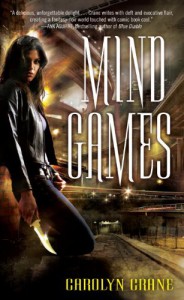 My sister said once, talking about Ursula K. Le Guin's Ged from the Wizard of Earthsea, that even his screw-ups are extremely cool. I think that fantasies tend to delude us into thinking that the cool is an external factor... if you thrown in a dragon, a ring and an enchanted sword, the winning moment is bound to be awesome. But in happiness and misery, we're essentially the same person. In real life, someone's victory or defeat does not equate to his personal greatness or inadequacy.
My sister said once, talking about Ursula K. Le Guin's Ged from the Wizard of Earthsea, that even his screw-ups are extremely cool. I think that fantasies tend to delude us into thinking that the cool is an external factor... if you thrown in a dragon, a ring and an enchanted sword, the winning moment is bound to be awesome. But in happiness and misery, we're essentially the same person. In real life, someone's victory or defeat does not equate to his personal greatness or inadequacy.Ged invoked some bichin' shadow from the otherworld and cursed himself and everyone around, but it still was a tour de force, despite its selfish reasons and disastrous consequences. I remember thoroughly embarrasing myself thanks to the bravest move of my adolescence. In fiction again, Frodo reached his goal and the peak of his simpering wuss-ness at the same exact time. That's what feels right- I'm clumsily trying to attack the ridiculous, Christian (protestant, actually) concept of succes as a recompense of moral worth.
This book gets that: its victories are as coated in shame and self-hate, achieved through the same underhanded methods and petty bargains with oneself and others as bitter defeats. And yet, what a satisfying, fantasy/romance worthy twist: to turn one's handicapping neurosis into a weapon! It's a clever idea: it does wonders for characterization and solves (elegantly) "the empowerment by bikini-wax" problematic of initially normal main characters.
At its core, this could be a choral super-heroes book, more in the Watchmen the-heroes-suck-at-life line than The Avengers. It even has a nemesis. I'm usually not much for pseudo psychology, but there is not any freudian bullshit in here. And it really holds its own in the indirect speech department. Don't misunderstand me- she's no Woolf- but she does blend obsessions from the inner life into the outer shell of thoughts, not just for the main character, but for all the others. Shelby tells Justine that she had no choice as a way to comfort her; it's also her desillusionnating (?) method.
The sex is intrusive (there's a "cucumbery cock". Hahaha. Ha. Ha.) It's worth noting that Justine feels attracted to just about anyone: Cubby, Carter, Aggie, Simon, Packard, Otto, but who's counting? I guess Otto and Packard are antagonistic relationship archetypes: Packard can make her fears and insecurities disappear (handy!), and he sees right through her, but he is a controlling Machiavel; he also says that Otto only wants the part of her that fits with him, not the whole, but isn't that just compromise? Normal, healthy compromise? Nevermind that, there's nothing healthy about this book.
I'm thinking that Otto would be the adult choice, but I like free, so I'm rooting for Packard. Plus, he's the first one to appear in the novel, and that usually makes him The One.
Special mention for the residing likable psyco, Simon. Viva losers! I'm rooting for him too.
What else? I am amazed at the moral relativism and the "we're all humans" thing she's got going. I have my doubts about the reset button of rapist, torturers, and even normal people, but I guess we're not really discussing reality.



